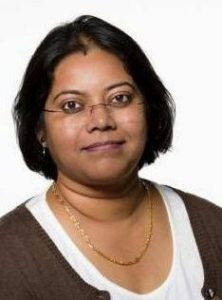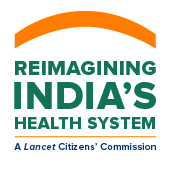In Conversation: Dipanwita Sengupta, Consultant, CMC Vellore
July 13, 2022

Trained in Microbiology, I have worked as a scientist earlier. Later I walked on a different path to be a Research Manager and worked with a prestigious research funding agency, DBT/Wellcome Trust India Alliance. Reading and evaluating different proposals in biomedical research and interaction with multiple internationally renowned scientists has provided me with interesting insights into the system. I had the opportunity to hone my skills in managing research grants and setting up policies and processes in grant review. In my role to support research, I have the opportunity to be close to many young scientists in India and understand their challenges while not being a researcher myself. Facilitating career development for bright young people working in healthcare and health systems has offered me the privilege to understand the system through the eyes of the young physicians, public health researchers, thought leaders in India, and also institutional heads.
I heard about the Lancet Citizens’ Commission- Reimagining India’s health system during the early days of its formation from Professors Gagandeep Kang and Vikram Patel. The idea of bringing together different angles of the health system (as different workstreams) together under the umbrella of the Commission and the solution-oriented approach impressed me. Today I work as a Consultant with CMC Vellore for the Commission. I am happy to be the ‘go to’ person for many who are working towards the mandate of the Commission from their own organizations. I work remotely to connect between more than 200 researchers in India and abroad, who are interested in contributing towards building a roadmap towards UHC for India.
Through the work of the Commission, we are trying to identify the challenges and probable solutions for India to achieve UHC. I feel that acknowledging diversity to bring equity for the population across different caste, religion, income, gender, geography is an important challenge. Training the Human Resources for Health in India on how to be accountable; and monitoring and evaluation of the existing and future schemes are equally challenging.
Through the work of the Commission, we expect to capture perspectives from various levels to design the roadmap towards UHC. The Citizens’ survey and the district level survey along with building evidence through review of existing literature are some key strengths that we hope to reveal in the Commission report. I appreciate the participation of experienced thought leaders along with young minds who care for the health system of the country to work towards the outcome for the Commission. I hope that we will have the opportunity to discuss and follow the recommendations of the Commission and only then will the real impact of the Commission’s work on India’s health system be observed.
